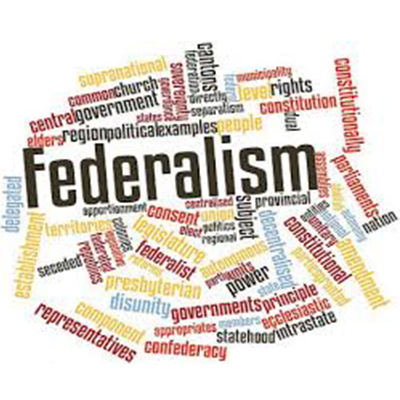
How to Deal with Entrepreneurial Stress
June 3, 2019
Top 5 tips for Entrepreneurs to Manage Operations as they Scale up
August 25, 2019Impact of Federalism on Nepalese Businesses
The Constitution of Nepal 2015 formally declared the country as a “Federal Democratic Republic”, meaning that the country is now divided into three tiers of government namely federal, provincial and local. This diffusion of power has delegated more authority to provincial and local government thereby helping to solve the problem of Kathmandu centrism. However, it might still take a few more years to implement federalism at a full-fledged scale. Since the country is in an infant stage of the federalist structure, all the policies, rules and regulations are not clear yet. Once the federal structure is implemented properly, slowly, the confusions will become clearer, hopefully resulting in a conducive business environment. Nevertheless, the opportunities and challenges that come along with it should be taken into consideration, especially by businesses so that they can tap into the opportunities to reap the benefits and overcome challenges effectively.
Wider market
The capital is flooded with businesses that provide basic facilities such as schools and hospitals to entertainment services such as cinema halls and restaurants. International franchises have also not entered markets outside the valley due to the high concentration of population in Kathmandu. However, with the outset of federalism, currently, a centralized population in the capital is likely to disperse outside the valley. This is something that businesses should consider as markets in other regions of Nepal is expected to surge. Taking this into account, it would be a good strategy for businesses to strengthen their supply chain, distribution and presence in markets outside the valley at an earlier stage as it will be relatively easier to penetrate the market than later when the competition is higher.
Unclear Taxation Policies
The government has not yet clearly outlined the policies regarding taxation. Due to this, the state and local government have been interpreting the constitutional provisions and levying taxes as they seem fit without considering the problems faced by businesses and entrepreneurs. In many areas, the government has raised property tax, tourism tax, local resource utilization tax and imposed unnecessary fees and royalties on businesses. Thus, businesses have to be careful and ensure that they are not being double taxed. Although the lawmakers are still in the process to clear ambiguities concerning taxation laws, businesses need to keep in mind that the central government is primarily responsible for collection of major taxes such as customs, VAT, excise duties and income taxes whereas the state and local government collects revenues from vehicle tax, property tax, business tax, entertainment tax, tourism fee and other local taxes.
Businesses also need to consider the rate of taxes that are imposed in various states. Due to the differentiation in tax rates, the price of services may vary affecting competition in the market. Similarly, in the absence of effective tax mechanism, problems may arise in free delivery of services from one state to another. If the government decides to create tariff and non-tariff barriers on interstate delivery of services, businesses will face challenges based on pricing, inter-state competition, and profitability.
Ease of doing business
The latest statistics of World Bank-2019 ranks Nepal 110 among 190 economies in the ease of doing business. The concern now is whether the new federal structure will add another layer of bureaucracy or facilitate entrepreneurs and businesses. On a positive note, under the federal structure, business registration might become easier for entrepreneurs if the government allows registration to be done under their respective states. A very good practice can be learned from our neighboring country India where the procedure for business registration has been made simple through online registration. If such kind of system can be implemented in Nepal as well then it could reduce the cost, time and effort of the business.
However, this is only possible after the government sorts their internal matters first, regarding the clear distinction of roles and responsibilities among the three tiers of government. Due to such unclarities, the businesses have been imposed with double-taxation, high royalty fees, and administrative hassles. For instance, recent news stated the local government’s pressure on NGOs to be registered at municipalities to continue their activities in local federal units. If this trend persists, then the impact might soon be felt among businesses disallowing them to operate their business until they are registered at the local level. Thus, clear roles and responsibilities of the provincial and local authorities should be defined by resolving the loopholes that currently exist in the system.
State and local market-specific priority sectors
The government at the provincial level is currently working on a five-year periodic plan incorporating a separate chapter for each province to address their specific needs. The periodic plan aims to make full utilization of human capital, expansion of accessible and modern infrastructure, improved production and productivity, a decent standard of living all accumulating in creating a civilized society. Moreover, various other local level programs are also being implemented for the effective utilization of local resources and service delivery to its citizens. These programs include Local Governance and Community Development Programme which is being executed under the Ministry of Federal Affairs and General Administration. Similarly, the government of Nepal with support from the Asian Development Bank is aiming to improve the urban services in eight municipalities namely Godawari, Bhimdatta, Biratnagar, Birgunj, Dhangadhi, Shuklaphanta, Nepalgunj and Siddharthanagar in the Terai Region of Nepal through planning, infrastructure investments, and institutional strengthening. In order to support these programs, the government is seeking assistance from various players including private sectors. The link for these programs can be found below:
Local Governance and Community Development Programme (LGCDP) – II
Regional Urban Development Project (RRP NEP 47252)
This comes as a piece of good news for businesses as they can now explore and invest in new markets besides the prominent ones. Moreover, in order to attract investments, the provincial government might assign specific priority sectors within the province by offering support schemes such as cash subsidies and tax benefits to businesses. This, in turn, generates healthy competition among states to improve their laws and policies creating a promising environment for businesses. In this case, businesses will have the choice to enter those provinces that are providing laws and policies that best suit their business mechanism or states that have the availability of resources required for their business operation. For instance, province no. 6 and 7 carry huge potential for hydropower, tourism, agriculture and herbal products. So, service businesses such as hotels, restaurants and other hospitality services will have an advantage in these regions. Likewise, there are greater efforts directed towards upgrading Province no. 2 from the poorest category through the special plan for its growth and development. Businesses should, therefore, keep an eye out for opportunities in these areas.
Conclusion
These are some of the major impacts that Nepalese businesses may encounter as a result of federalism. It might appear like a lot of challenges to deal with but with proper information and strategy, businesses can reap benefits from the new policies. With a higher level of power attributed to the local level, municipalities are seeking support from various private players for local development in areas such as health, education, road construction, and waste management among others. This serves as the perfect opportunity for businesses to collaborate with municipalities in their development plan. As entrepreneurs, it should be their flair to find problems disguised as opportunities and thus, should be in a constant search for it since the business scenario in Nepal might still look hazy for another few years while federalism is still at the seed stage.

